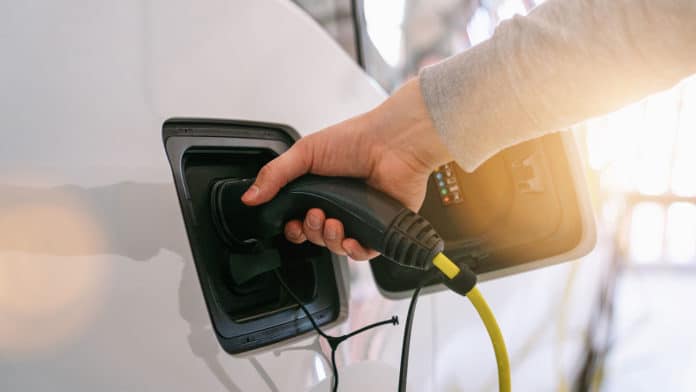Many electric vehicles are powered by rechargeable lithium-ion batteries, but they lose capacity, performance and get more dangerous under charging conditions by aging.
To solve these problems, the University of Nottingham is collaborating with six scientific research institutes across China to develop a salt-based battery with the combined performance benefits of a solid-oxide fuel cell and a metal-air battery. The new battery could significantly extend the range of electric vehicles while being fully recyclable, environmentally-friendly, low-cost, and safe.
In their attempts to develop a better alternative to lithium-ion batteries, the team initially explored a high-temperature, iron-air battery design that used molten salt as a type of heat-activated electrolyte for electrical conductivity. Cheap and inflammable, molten salt help to give a battery impressive energy storage and power capability and a lengthy lifecycle.
However, in extreme heat, molten salt can be “aggressively corrosive, volatile and evaporate or leak, which is challenging to the safety and stability of battery design,” explains Professor George Chen, University of Nottingham study lead, from the Faculty of Engineering.
Now, the research team has successfully improved the technology by turning the molten salt into soft-solid salt, using solid oxide nano-powders. They predicted that this quasi-solid-state (QSS) electrolyte is suitable for metal-air batteries, which operate at 800 ºC – about the same as that of the engine exhaust gas. It suppresses the evaporation and fluidity of the molten salts that can occur at such high operating temperatures.
The quasi-solidification was achieved using nanotechnology to construct a flexibly-connected network of solid oxide particles that act as a structural barrier locking in the molten salt electrolytes while still allowing them to safely conduct electricity in extreme heat.
“The modified molten salt iron-oxygen battery has great potential applications in new markets, including electric transport and renewable energy, which require innovative storage solutions in our homes and at grid-level,” said Professor Chen, who is leading a molten salt electrolysis laboratory in Nottingham.
“The battery is also, in principle, capable of storing solar heat as well as electricity, which is highly desirable for both domestic and industrial energy needs. Molten salts are currently used at large scale in Spain and China to capture and store solar heat, which is then converted to electricity – our molten salt metal-air battery does the two jobs in one device.“
Chen hopes that the team’s results will help to establish a simpler and more efficient approach to designing low-cost and high-performance molten salt metal-air batteries with high stability and safety.
